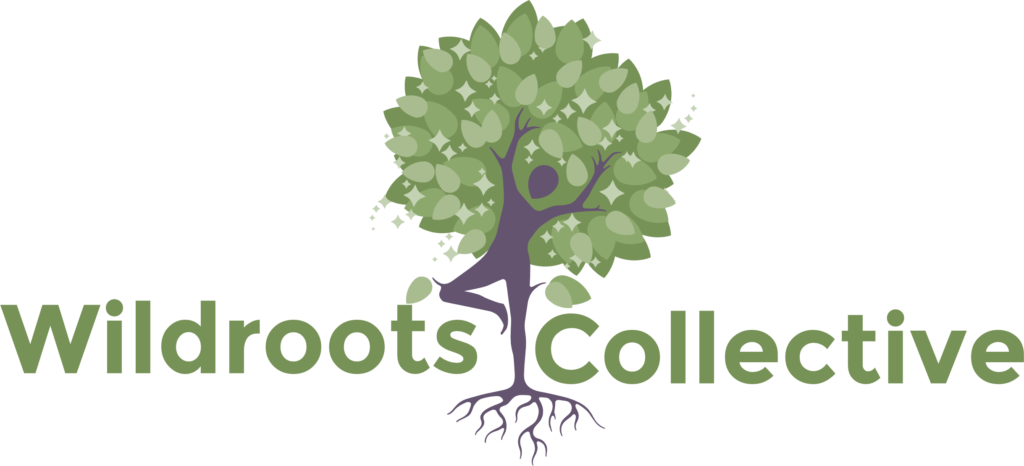Is anger disrupting your path to happiness and inner peace? As a complex and often challenging emotion, anger can be difficult to manage. At Wildroots Collective, we offer holistic therapy designed to help you process anger in a healthy, effective way. Let’s explore the many facets of anger together and discover how to transform this powerful emotion into a source of positive growth and balance.
What on earth do we “do” with anger? Forgive and forget… let it go…get over it…
These are the phrases we have all heard when we are feeling angry, and friends or supporters are trying to help us move past the experience of anger.
How do we “get over” anger anyway? Anger is an energetic emotion; it comes from a very heightened physiological and mental state; what do we do with this energy? What do we do with anger to “let it go?”
There is plenty of research identifying that unprocessed anger can be internalized by our bodies and manifest as physical illness. Unprocessed emotions of various kinds are known to be re-absorbed into the body and lead to a myriad of significant health issues. This is preventable. This doesn’t need to be our default process.
Then what do we do with the feelings and physiological experience of feeling so angry at the person who cut us off in traffic, or at a friend who betrayed our secret to another, or at our spouse for saying something hurtful and provocative, or at our landlord for increasing rent, or at a parent who was unavailable during our childhood?
There are so many moments in life where we feel anger, and it’s valid!
What Is Anger?
When our nervous system is activated, or when we perceive a threat or that we are in danger, we experience an increase in heart rate and blood flow to the extremities (so that our feet can carry us far away or so that our arms and hands can protect us). Our pupils dilate so that we can see more, our nostrils flare so that we can smell more.
Our senses become heightened. We experience adrenaline, and if we are heightened for long enough (20+ minutes), we experience cortisol, the stress hormone. These physiological experiences pair with emotions like fear, anger, and frustration. Our mind connects these perfectly normal physiological reactions with emotions like fear, anger and frustration.
In times when we feel wronged, misunderstood, misrepresented, disrespected, ignored, betrayed, abandoned, or straight-up abused and hurt, anger often shows up, and that makes sense! Vulnerability often invites anger. It’s a life-preserving response. Its intention is to give us the fuel we need to protect ourselves, to keep ourselves safe.
Anger and fear are closely related. In fact, if we examine the emotion of anger, we will often see that fear underlies the anger. Anger helps mobilize us when fear might feel like it freezes us. Both are ok; anger IS ok.
Anger gets a bad rap, and this is too bad because, inherently, anger is not a bad emotion at all. But when we don’t know what to do with our anger, it can lead us into behaviors that can be dangerous, for ourselves or others. So how do we process anger before it gets to that point?
There are many ways to process anger, and it depends on the person, the kind of anger, and how it’s being experienced. Let’s take a look at a few options that can provide emotional support and allow us to process anger before it gets the better of us.
Talk Therapy
Sometimes just talking about it with a trusted person is helpful. This can be through psychotherapy or simply discussing the issue with a friend. Naming the emotion, and talking about why you are angry with someone who can validate your experience, can be enormously de-escalating. But, for some of us, we continue to feel the lingering energy that anger creates. What should we do with that?
Therapeutic Journaling
Journaling is a type of mindfulness therapy that offers another way to process complex emotions. When an experience is brought to words through handwriting, there is a physical connection that takes the energy away from your body, and that can feel liberating.
Journaling or writing can be used with symbolism as well. A method that has been helpful for many is to write a letter to a person or situation that made you angry, and then burn the letter. Symbolizing the expression of the anger and then the tangible metaphor of disintegrating or letting go of the emotion. (If this appeals to you, always be careful with the use of flame indoors and outdoors!)
Movement & Exercise
Movement is another great way to process anger. Move your body; you can move it fast or slow, you can dance, you can run, you can jump up and down, you can do push-ups. Movement, such as exercise or physical activity, helps release anger by reducing stress hormones, increasing endorphins, and providing a healthy outlet for pent up energy, which calms the mind and body.
Art Therapy
Art is another great way to process anger. Get creative, get colorful, get bold, and get messy if you want. Paint something your anger brings out in you, or just paint colors. I like to spray paint on big pieces of paper because it feels like the movement of my arms with the spray paint is a physical expression of anger, and it feels as though it’s leaving my body.
Humor
Laughter works miracles, and if there are ways you can access your sense of humor about a situation, anger will feel much less intense. Memes, gifs, reels, cartoons that are relevant, are all great ways to find humor in your situation. Humor helps us take ourselves and the situation less seriously and helps de-personalize the experience. It takes us from the center of the experience “why is this happening TO me?!” to an observer of the experience, “oh my, will you look at that?!” This perspective shift offers a powerful opportunity to detach from the threat of the incident and your nervous system will be much less activated.
Internal Regulation
An important aspect of managing anger is learning how to regulate your own nervous system. The hormones epinephrine and norepinephrine, our fight/flight hormones, are powerful and give us so much energy and strength.
However, they are short-lived hormones, only designed to give us about 20 minutes of an energetic burst. If we can engage in relaxation skills such as taking deep breaths and embracing a calming phrase we can repeat, or imagery taking us to a calmer inner place, our bodies will respond by inhibiting the adrenaline and bringing our bodies back down to a resting state. Our activating (sympathetic) and deactivating (parasympathetic) nervous systems operate in opposition to each other, while one is on, the other is off. By turning on our deactivating nervous system, it forces our activated nervous system off.
It’s easier said than done! However, self-regulation remains an important component of anger management as well as anxiety reduction and stress therapy. It doesn’t take the anger away, but it does enable our nervous systems to relax so that we can make decisions about our behavior that are safer and healthier.
The more we know about how we experience anger, the better we are at processing it and letting it go. If we start to notice our body’s experience, we will find that anger shows up in our cheeks, neck, hands, or stomach. This awareness increases our ability to cope with anger in a more positive way.
Most importantly, treat your anger with compassion. It’s another of the incredible emotions we experience as humans, and it’s here to help us. If we can lean toward it, listen to what it’s telling us, and find ways to release it, our bodies, minds, and relationships will thank us.
Struggling With Anger? We Can Help
While anger can be beneficial and even righteous at times, if you find that pent-up anger is eating away at your serenity, happiness, and overall health, holistic psychotherapy can be an excellent tool to consider.
Holistic therapy is a unique approach to treatment that focuses on healing the whole person – mind, body and spirit – rather than addressing a specific symptom or issue. Often, with this type of psychotherapy, a holistic therapist will integrate traditional talk therapy with aspects of mindfulness as well as physical exercise, yoga, meditation, and nutrition.
With holistic therapy, our goal is to achieve balance and wellness by considering the emotional, physical, and spiritual well-being, helping individuals improve their overall quality of life.
Of course, with our busy schedules, finding time for mental health counseling often is difficult. However, online therapy provides a higher level of flexibility than in-person counseling, allowing you to meet with a professional in the comfort and privacy of your own home.
At Wildroots Collective, we help women throughout Colorado, Montana and Wyoming by providing counseling services that enable them to reconnect with their intuition. We offer individual therapy, collaborative workshops, and wellness retreats that can help you heal from trauma, reduce feelings of anxiety and depression, improve mindfulness and help you work through anger and move forward. Whether you prefer individual holistic therapy or would like to attend one of our workshops or retreats, contact us at any time for a free consultation.



